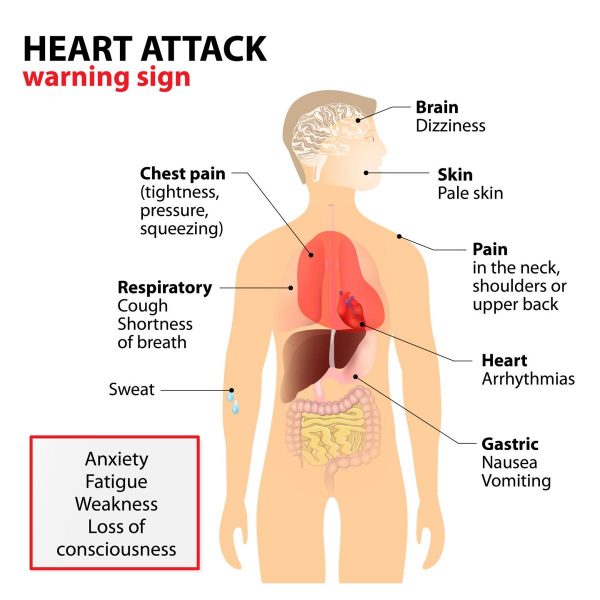According to the study published in The Lancet journal, the risk of heart attack and stroke is increased three times more in the first two weeks following Covid-19 infection.
The study took into consideration 86,742 Covid-19 patients with 348,481 control individuals in Sweden from February 1 to September 14, 2020, and compared the occurrence of acute myocardial infarction or heart attack, and stroke in them.
Talking about the same, Osvaldo Fonseca Rodriguez from Umea University in Sweden, and co-first author of the study said, “We found a three-fold increased risk of acute myocardial infarction and stroke in the first two weeks following Covid-19.”

The risk was the same irrespective of comorbidities, age, gender, and socio-economic factors of the patients.
Throwing light on the results of the study, Loannis Katsoularis from Umea University, a co-author of the study said, “The results indicate that acute cardiovascular complications represent an important clinical manifestation of Covid-19. Our results also show how important it is to vaccinate against Covid-19, in particular the elderly who are at increased risk of acute cardiovascular events.”
How was the study conducted?
For the study, the team of researchers made use of two statistical methods- the matched cohort study and the self-controlled case series. The self-controlled case series study was used to determine the risk of complications following vaccination.

“Both the methods suggest that Covid-19 is a risk factor for acute myocardial infarction and ischaemic stroke. This indicates that acute myocardial infarction and ischaemic stroke represent a part of the clinical picture of Covid-19, and highlights the need for vaccination against Covid-19, ” the authors of the study said.
A control group was made. It comprised four individuals whose data was matched to every Covid-19 case on age, gender, and resident country, that had not tested positive for Covid-19.
For all the reported cases of Covid-19, the study cross-linked information from national registries from the Public Health Agency of Sweden, Statistics Sweden, and the National Board of Health and Welfare. By making use of historical registry data from the National Board of Health and Welfare’s inpatient registry, individuals who had a history of myocardial infarction and stroke were identified and eliminated from the study.
Krister Lindmark, a co-author of the study suggested, “It would have been difficult to calculate the risk that Covid-19 contributes to acute myocardial infarction and stroke if individuals with a prior event were included. This is because the risk of a recurrent acute myocardial infarction and stroke is increased following a first acute myocardial infarction or stroke.”



